Three British nationals are among 16 people who died when the Gloria funicular derailed and crashed in Lisbon, Portuguese police have said.
The British victims were an 82-year-old man, a 44-year-old man and a 36-year-old woman, police confirmed.
More than 20 people were injured when the funicular derailed and crashed into a building in the Portuguese capital at 6pm on Wednesday.
Prime minister Sir Keir Starmer was “deeply saddened” to hear that three British nationals had died in the crash, Downing Street said.
“His thoughts are with their families and those affected by this terrible incident. We stand united with Portugal during this difficult time,” a spokesperson added.
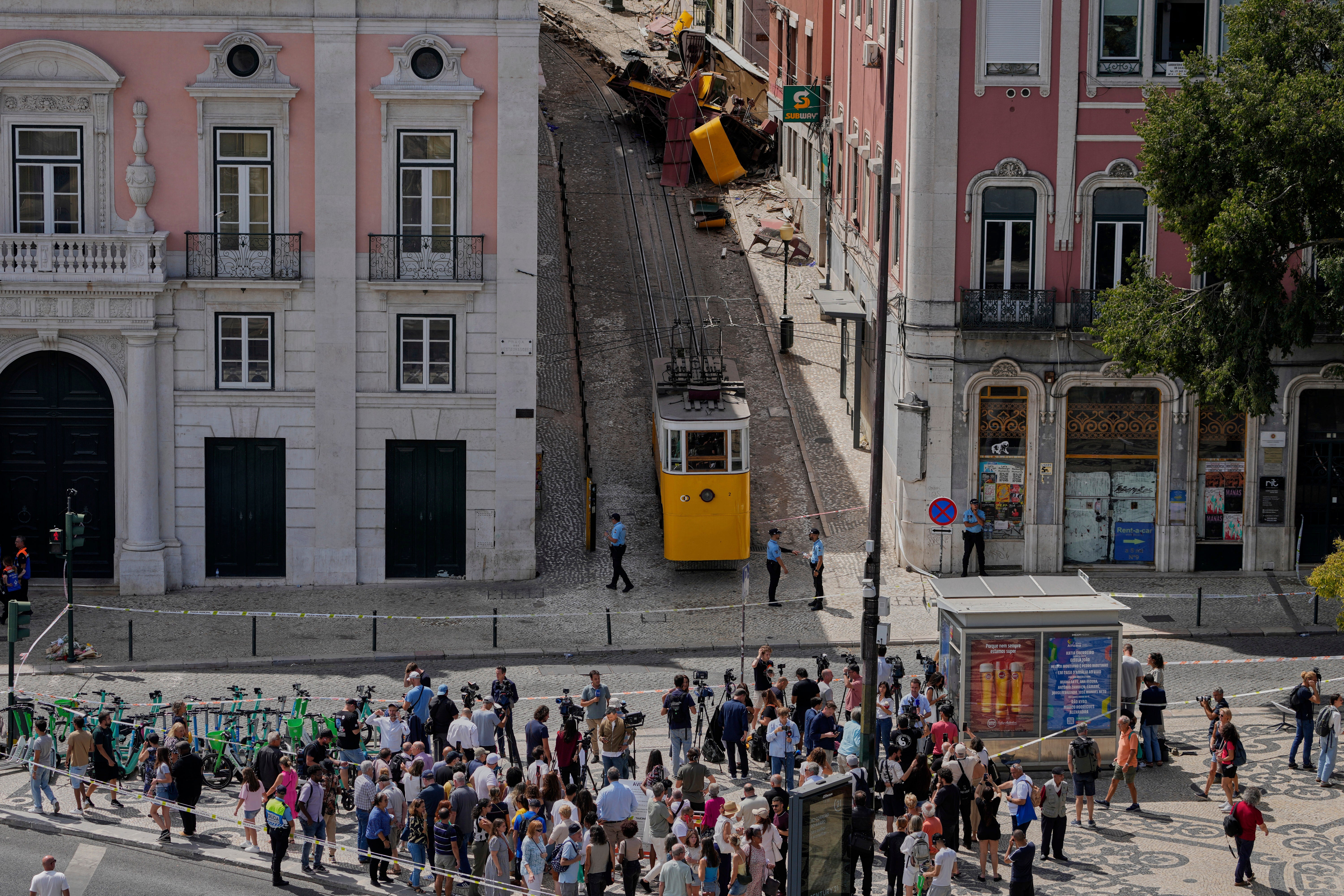
A spokesperson from the Foreign, Commonwealth and Development office said: “We are supporting the families of three British nationals who have died following an incident in Lisbon, and are in contact with the local authorities.”
Portugal’s judicial police confirmed on Friday that citizens of Portugal, South Korea, Switzerland, Canada, Ukraine, the US and France were also among the dead.
Andre Jorge Goncalves Marques, a brake guard who worked on the Gloria funicular railway, was on Thursday named as one of the victims of the crash.
Carris, the company that operates the funicular, said in a statement that Marques had “performed his duties with excellence” and had been an “outstanding representative” of the company.
“His courage and professionalism, recognised by all, came to a tragic end with the loss of his life in the accident that claimed his life,” it said.
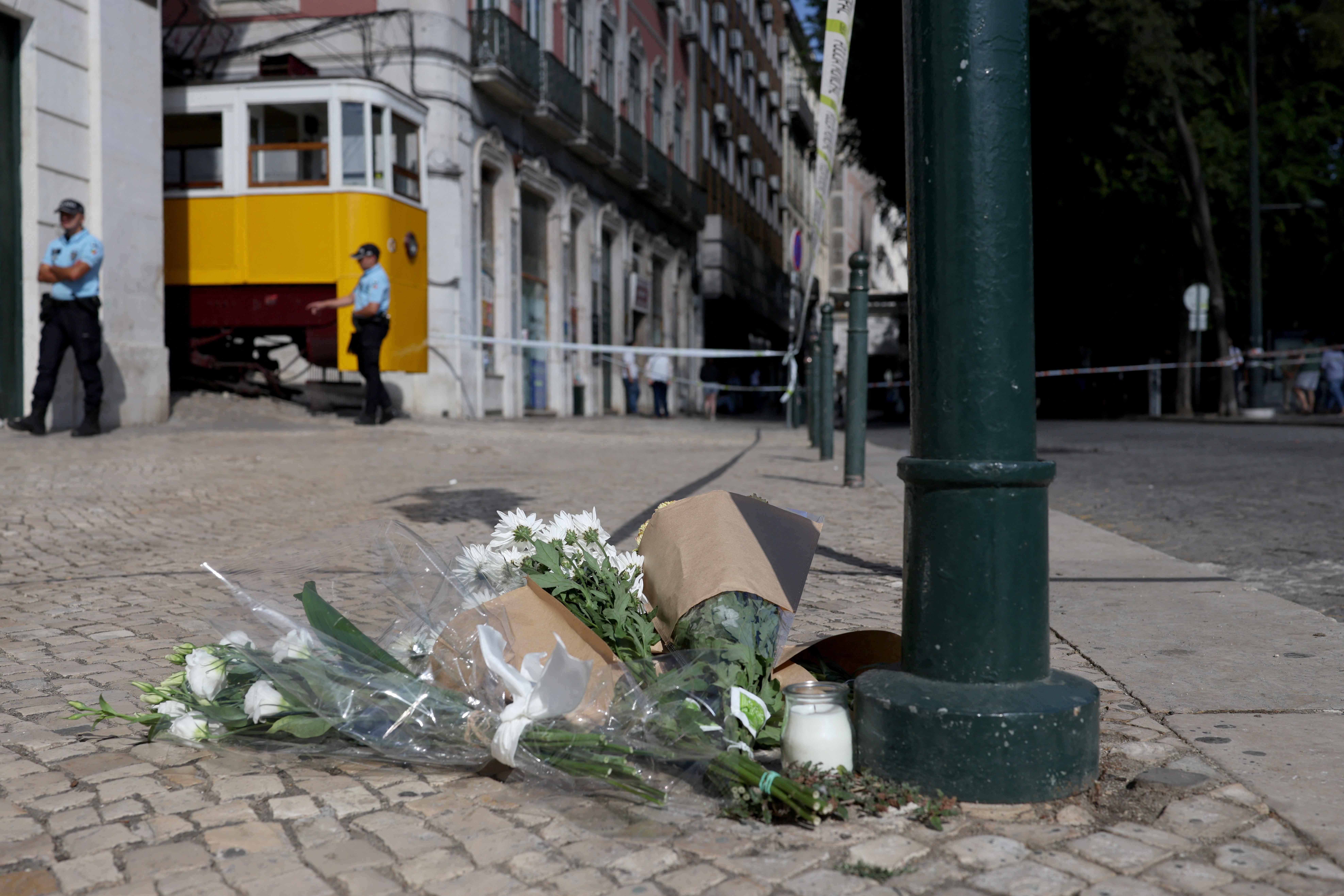
The operator described him as a “dedicated, kind and smiling” professional who was “always willing to contribute to the greater good”.
Portuguese transport union Sitra also paid tribute to Marques. “We also send our condolences to the families and friends of the victims of the accident and wish them a speedy recovery as well as the best recovery to the others injured in the accident,” the company said in a post on Facebook.
“This is one of the biggest human tragedies of our recent history,” Luis Montenegro, Portugal’s prime minister, said of the crash, as he revised the death toll to 16 after authorities previously said 17 people had died.
Other victims named on Thursday include former volleyball referee Pedro Manuel Alves Trindade and lawyer Alda Matias.
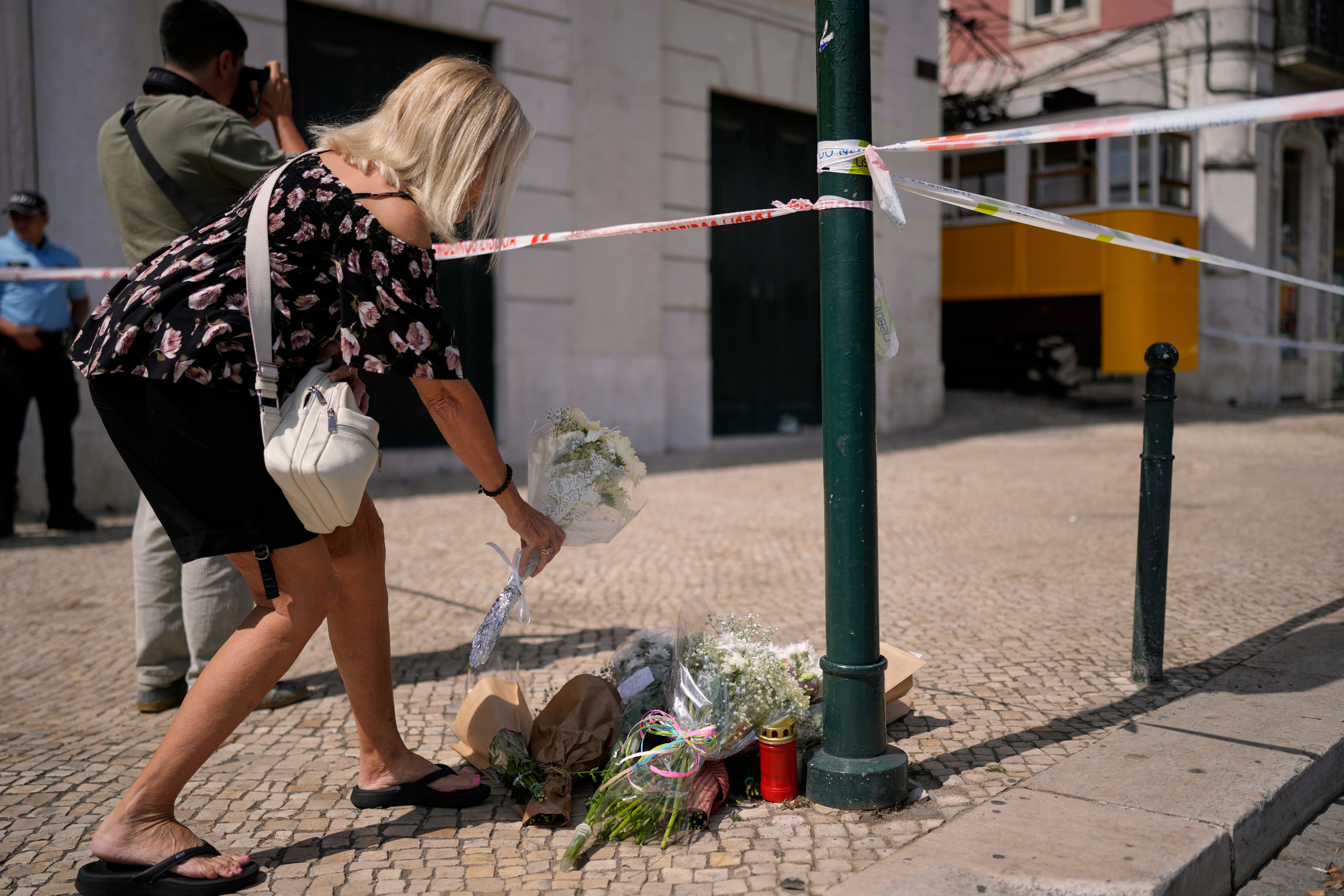
Trindade was named as a victim by the Portuguese Volleyball Federation. The organisation said it was “deeply saddened by the tragedy”.
Santa Casa da Misericordia de Lisboa, a Portuguese charity that supports disabled people and orphans, confirmed that four of its employees were killed in the crash.
“We are all in shock. We have lost colleagues, friends, people with whom we shared our daily lives and our mission,” Paulo Sousa, the head of the charity, said in a statement on Thursday.
All the people who died were adults, Margarida Castro Martins, the head of Lisbon's Civil Protection Agency, said.
A three-year-old German boy was among the survivors pulled from the carriage where his father reportedly died, and his mother was among 22 other people who were injured.
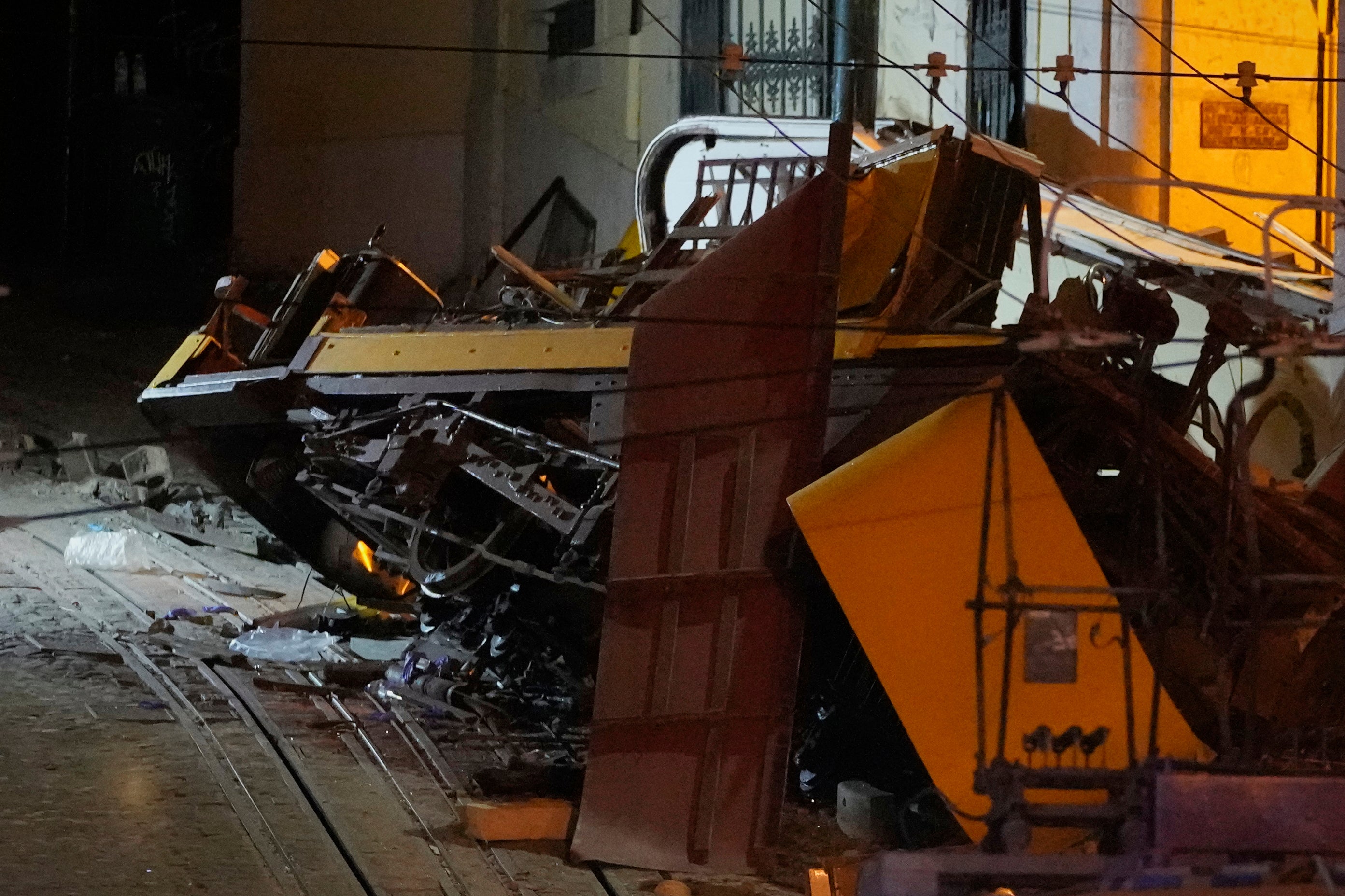
As well as Portuguese people, two Germans, two Spaniards and one person each from France, Italy, Switzerland, Canada, Morocco, South Korea and Cape Verde were among the injured, the agency head said.
Seven of those injured are in a serious condition. The injured are men and women between the ages of 24 and 65.
Pathologists at the National Forensics Institute worked overnight on autopsies, officials said.
Witnesses expressed their shock following the accident. British tourist Felicity Ferriter, 70, said she was unpacking her suitcase at a nearby hotel when she heard “a horrendous crash”.
She said she had intended to ride on the popular Lisbon tourist attraction as part of her visit. “It was to be one of the highlights of our holiday,” she told the AP news agency.
The Portuguese Institute of Blood reinforced the blood reserves of hospitals that treated victims of the crash, and also activated a contingency plan, the country’s news agency Lusa reported.
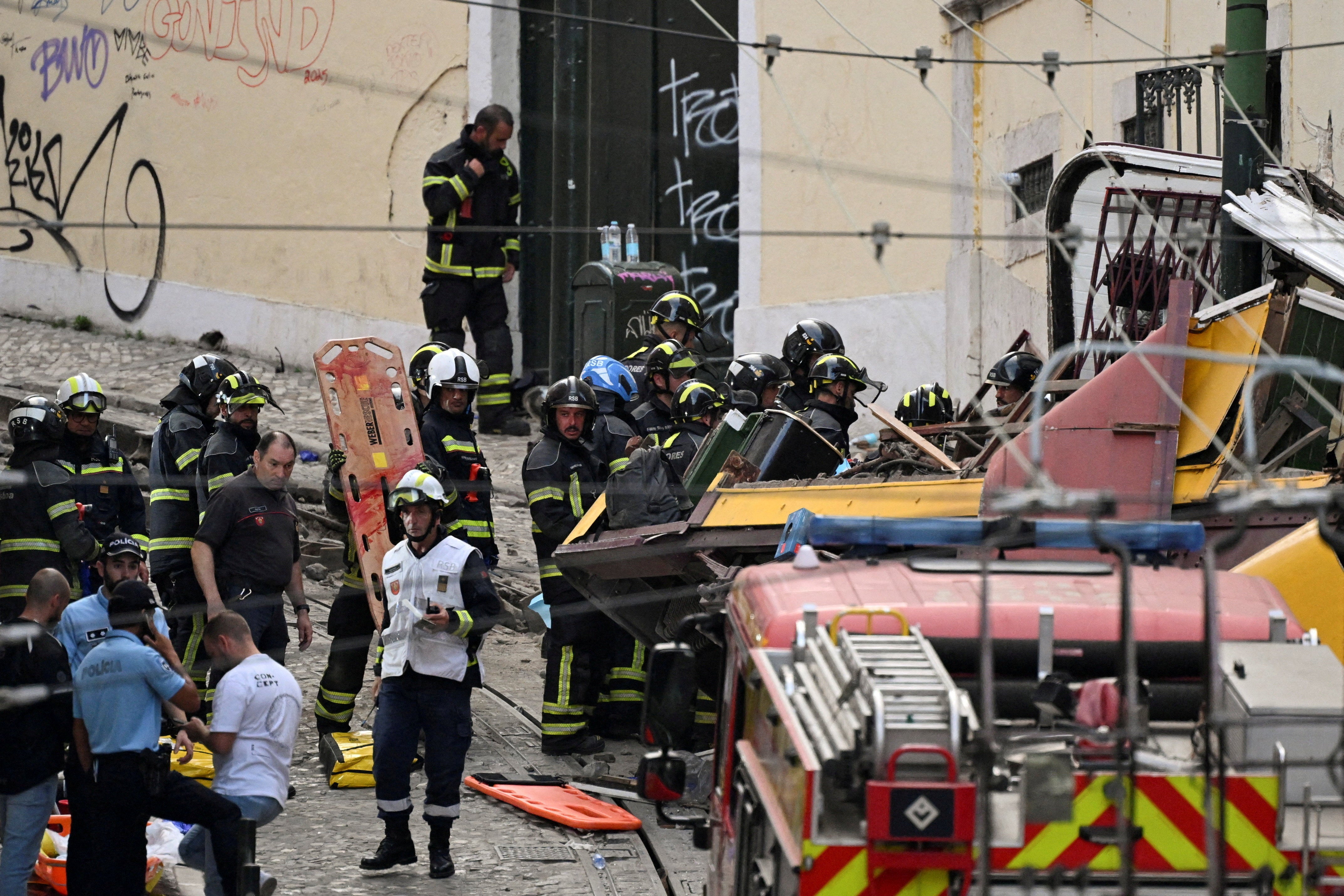
The government said the tragic accident had “caused irreparable loss of human lives, which left their families in mourning and the country in shock”. It added: “The government has decided to declare a day of national mourning as an expression of the Portuguese people's condolences and solidarity.”
President Marcelo Rebelo de Sousa also offered his condolences and solidarity to the families affected and said authorities are working to establish the cause of the incident.
City mayor Carlos Moedas also confirmed that the funicular operator Carris had been asked to open both internal and external investigations.
Initial reports suggest that the cable attached to the funicular came loose. Following the incident, Lisbon City Council suspended three other funicular cable railways – the Bica, the Lavra and the Graca.
The system’s two cars, each capable of carrying around 40 people, run parallel to each other as they shuttle up and down the hill on a curved, traffic-free road.
The railway, which opened in 1885, is operated by the municipal public transport company Carris.
Carris head Pedro Goncalo de Brito Aleixo Boga reiterated that the funiculars have been working properly since 2007, and technicians check them regularly to make sure there are no problems. All findings are recorded.
Maintenance costs have more than doubled between 2015 and 2025, he added.
Portuguese victims of streetcar crash mourned by colleagues, friends and local residents
Father feared dead in Lisbon funicular crash found alive after toddler son rescued
Three Britons killed in Lisbon funicular crash
Lisbon locals blame ‘excessive tourism’ for deadly funicular crash
Pope feeds fish as he explores the Vatican’s new eco-friendly farm
Trump is undermining Europe’s new world order – much to Putin’s glee







